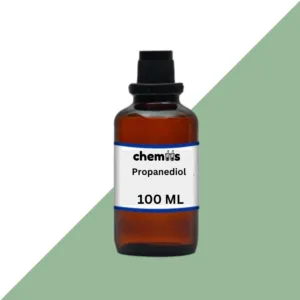Oil Fennel is a highly aromatic essential oil extracted from the seeds of the fennel plant (Foeniculum vulgare). Fennel oil is renowned for its diverse therapeutic benefits, especially in promoting digestive health, supporting hormonal balance, and easing inflammation. This oil has a sweet, herbaceous, and slightly spicy aroma, making it popular in aromatherapy and personal care products. It is rich in anethole, a compound responsible for its characteristic scent and many of its beneficial properties.
Fennel oil has been used for centuries, particularly in Ayurvedic and traditional medicine, for its ability to support digestion, improve skin health, and even aid in weight management. It can be used in a variety of ways, including topical applications, inhalation, and even in some culinary preparations.
Applications
1. Digestive Health
Fennel oil is renowned for its digestive benefits and is often used to support healthy digestion and relieve discomfort associated with bloating, indigestion, and constipation. It helps to soothe the digestive system and alleviate cramps and gas.
- Digestive Tonic: When diluted with a carrier oil, fennel oil can be massaged into the abdomen to relieve bloating and promote digestion.
- Internal Use: Used in very diluted forms (in consultation with a healthcare provider), fennel oil may aid in relieving digestive discomfort.
- Digestive Teas: Some people use fennel oil in aromatherapy diffusers to promote digestive health indirectly.
2. Hormonal Balance
Fennel oil has been traditionally used to help balance hormones, particularly in women. It is believed to promote hormonal equilibrium, reduce symptoms of PMS, and support overall reproductive health.
- Menstrual Discomfort: Fennel oil is often used in massage blends to reduce pain and cramping associated with menstruation.
- Hormonal Support: It is also used in skincare products aimed at alleviating symptoms of hormonal imbalance, such as acne or dry skin.
3. Weight Management and Detoxification
Fennel oil has natural diuretic properties that help eliminate excess water retention and promote detoxification. It is often included in weight management formulas for its ability to support the body’s natural detox processes.
- Detoxifying Massage: When mixed with a carrier oil, fennel oil can be massaged into the skin to help reduce the appearance of cellulite and improve circulation.
- Appetite Suppression: Fennel oil is sometimes used in aromatherapy to help suppress appetite and curb cravings.
4. Skin Care
Fennel oil’s antimicrobial, antioxidant, and anti-inflammatory properties make it an excellent ingredient in skincare routines. It helps rejuvenate the skin, reduce acne, and promote overall skin health.
- Anti-Aging: Due to its antioxidant properties, fennel oil is used in anti-aging skin care products to protect the skin from free radical damage.
- Acne Treatment: It can help reduce acne and inflammation when applied topically in diluted form.
- Skin Soothing: It is also beneficial in treating skin irritation and dry skin conditions, promoting hydration and skin repair.
5. Aromatherapy and Stress Relief
The sweet and refreshing aroma of fennel oil makes it a popular choice for promoting emotional well-being. It is often used to reduce stress, alleviate anxiety, and support a clear, focused mind.
- Stress Reduction: Fennel oil can be diffused in the air to help relieve emotional tension and anxiety.
- Mental Clarity: It is also used to boost mental clarity, focus, and alertness.
- Relaxation: Fennel oil’s calming properties make it useful in relaxation rituals and massage blends.
6. Antimicrobial Properties
Due to its powerful antibacterial and antifungal properties, fennel oil is often used in natural cleaning products or skin care routines to prevent infections and promote overall hygiene.
- Surface Cleaner: Fennel oil can be diluted and used as a natural disinfectant for cleaning surfaces.
- Topical Applications: It is also included in skin care formulations to help prevent bacterial and fungal infections.
Safety and Handling
Precautions
While fennel oil is generally considered safe when used properly, it is important to follow proper safety guidelines to avoid any potential side effects.
- Skin Sensitivity: Always dilute fennel oil with a carrier oil (such as coconut or olive oil) before applying it topically.
- Pregnancy: Pregnant women should avoid using fennel oil as it may act as a uterine stimulant. Always consult a healthcare professional before use.
- Children: Fennel oil should be used with caution in children under the age of 2 years. Consult a pediatrician before use.
- Internal Use: Fennel oil should be used with caution in internal applications. Always consult a healthcare professional for guidance on safe use.
- Allergic Reactions: Perform a patch test before using fennel oil on sensitive skin. If any irritation occurs, discontinue use immediately.
First Aid Measures
- Skin Contact: If skin irritation occurs, wash the area with soap and water. Apply a carrier oil to the affected area to soothe irritation.
- Eye Contact: In case of eye contact, rinse immediately with water for at least 15 minutes. Seek medical attention if irritation persists.
- Inhalation: If excessive inhalation occurs, move to fresh air immediately and consult a healthcare professional if symptoms persist.
- Ingestion: If ingested accidentally, seek immediate medical attention. Do not induce vomiting unless instructed by a healthcare provider.
Storage
- Proper Storage: Store fennel oil in a cool, dark place in a tightly sealed glass container.
- Shelf Life: When stored correctly, fennel oil can last up to 2 years.
- Avoid Contamination: Keep the oil away from water and other contaminants to preserve its potency and effectiveness.








Reviews
There are no reviews yet.